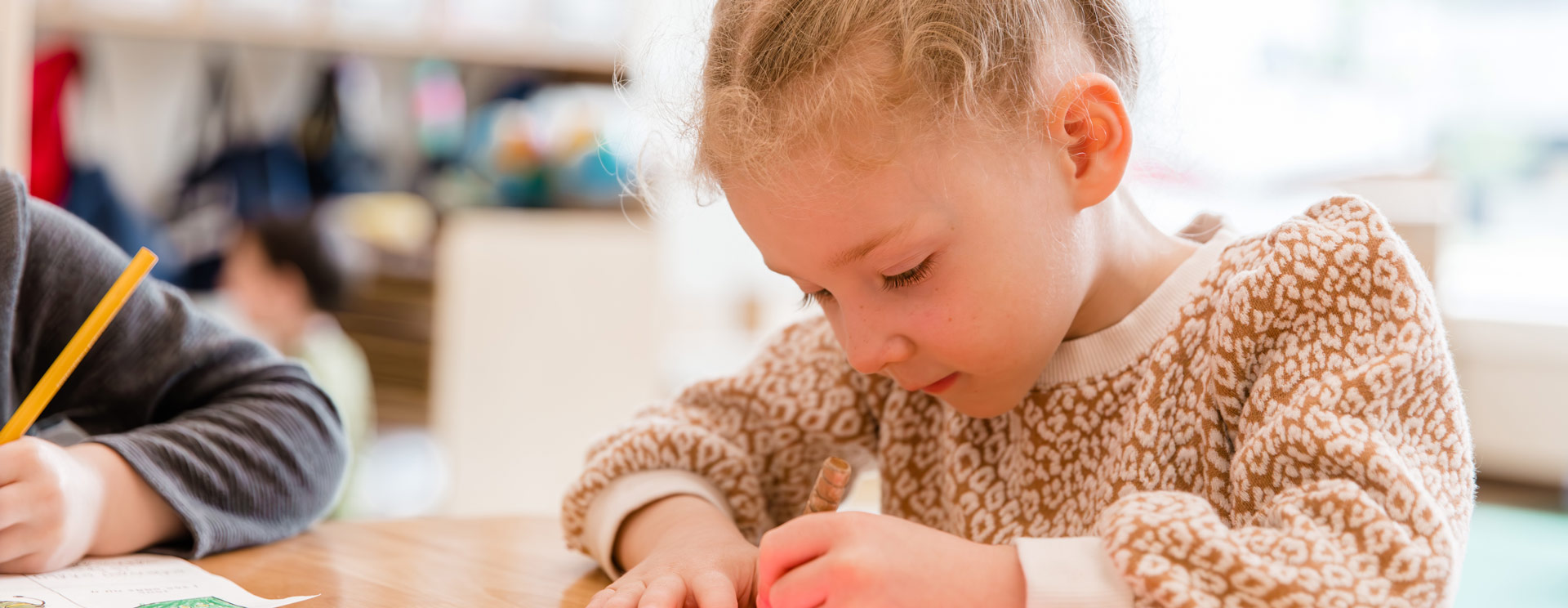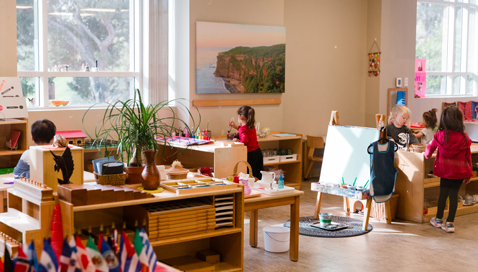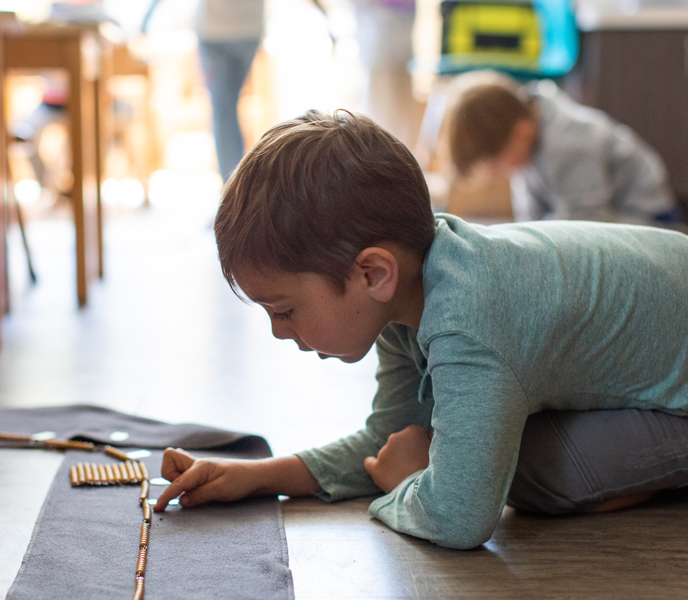
Our Curriculum
Our mission is not simply to create academically successful students, but to help them grow into happy, capable adults. We want our students to learn the knowledge and skills they need, while also building strong character and practical life skills.
When we choose what to teach, we think about what helps children succeed in the long run. We compare learning to a tree. The most important lessons, like reading, math, and thinking skills, are the trunk of the tree. These lessons give support to everything else, like a child’s hobbies and interests, which are the branches and leaves that grow from the trunk.


Curriculum Subjects
Frequently Asked Questions
In 1907, Dr. Montessori discovered that when children had the choice between pretend play and doing real work, they chose real, meaningful work. For example, in her first classrooms, there were dollhouses where children could pretend to serve tea to dolls, and real, child-sized tea sets where they could make and serve real tea to each other. The children always chose to do the real work with the real tea sets. That is why we give children the chance to do real tasks in all of our classrooms. This does not mean pretend play isn’t important. If children like to pretend at home, parents should support them. But in school, we have found that kids love doing real work—and they think it is fun!
Dr. Montessori’s research showed that real creativity comes from first learning important skills. Just like a jazz musician becomes creative after mastering how to play the piano, children need to practice skills before they can be truly creative. For example, we teach children how to control a pencil by practicing “the art of the inset.” Once they learn this skill, they are ready to create their own beautiful and creative drawings later on.
Our classrooms have a strong focus on developing mature social skills. Our teachers help by giving students words to express their feelings, showing them how to be polite and kind, and guiding them as they learn to control their actions when playing with others. Dr. Montessori discovered that many preschoolers like to work by themselves, and we respect that choice. Children are free to work on their own during part of the day, and they also join group activities like lessons and singing together. Our goal is to help each child enjoy positive social interactions and learn to be kind to others.
Our program, like all true Montessori schools, has classrooms with children of different ages. In our Preschool/Kindergarten classroom, children ages 3 to 6 learn together. Dr. Montessori found that kids in this age group grow and learn in similar ways, so she designed the classroom materials to fit their needs. During the last year, children use all the skills they have been building, like writing, reading, and math. Kindergarteners are the oldest in the class, which helps them feel proud and confident as they guide the younger children. By teaching others, they strengthen their own skills. When our students are ready, usually after they turn 6, they move on to the elementary class, excited for the new challenges ahead.
Yes. Most children in our Preschool/Kindergarten program learn to write and read by the time they finish, which is around age 6. Children who join our program around age 3 usually start writing by age 4 ½ to 5 and begin reading shortly after that. By age 6, many of our students can read different children’s books and write several sentences, often in neat cursive. However, every child is different, and some children, like those with dyslexia or other learning challenges, might need extra help and may take a bit longer to reach these milestones.
It might seem surprising, but it is actually easier for young children to learn cursive writing first, instead of printing letters. In many traditional schools, children are taught to print letters first because people think cursive is too hard. Then, in 3rd grade, they have to unlearn printing and start learning cursive, which makes things harder. In Montessori, children learn neat cursive handwriting around age 4 ½ or 5 with special materials. They skip the step of learning to print, but they still learn to read printed letters. Cursive is also quicker and helps children develop their own style of writing.
We know that young children, especially toddlers, may feel anxious when starting school. Our goal is to make the transition smooth and help them feel safe with new, caring adults. We use an individualized approach, sometimes with shorter days during the first week to help children adjust. We encourage parents to share concerns with us so we can provide the best support. Before starting, we also invite parents to visit the classroom with their child for a short time to help them feel more comfortable.
In class, children receive extra support from teachers and older students. With small groups of new children starting at once, we can focus on helping each child feel secure. We believe in children’s ability to adapt and grow emotionally, and we gently guide them through the process, offering support while also helping them learn to manage their feelings.


